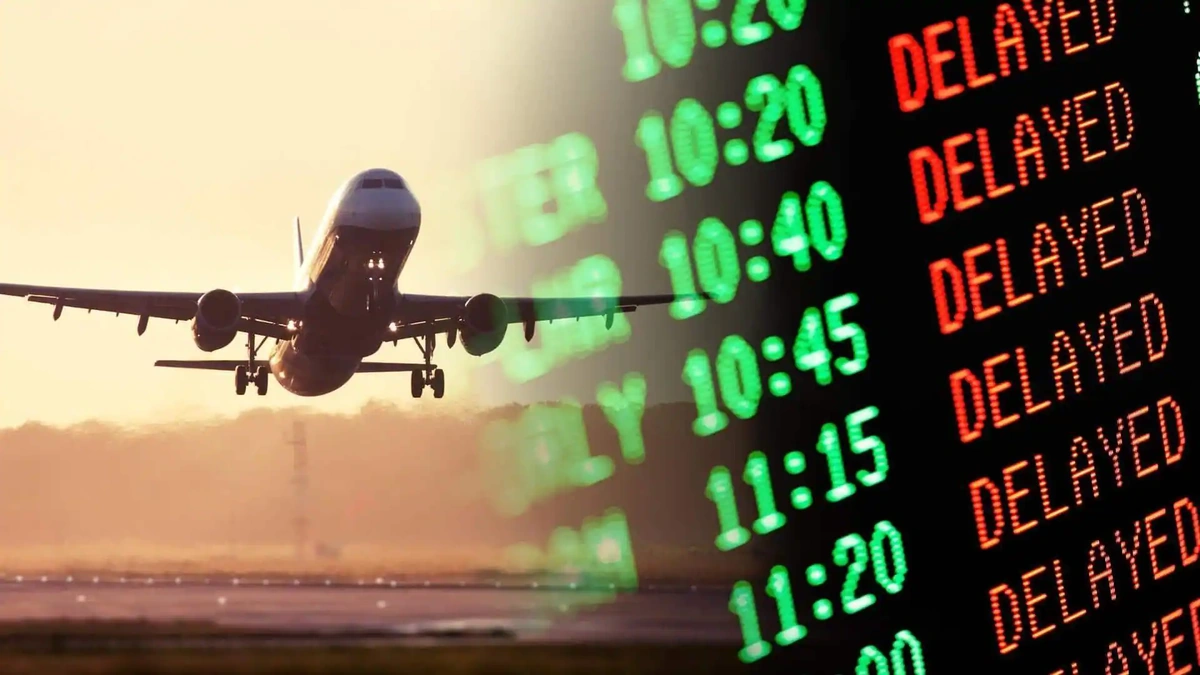So, you’re probably seeing headlines about airport delays in the US, especially at Nashville Airport, and a government shutdown being blamed. But let’s be honest – headlines only scratch the surface. What really matters is how this mess impacts your travel plans, your sanity, and, frankly, whether or not you’ll make that connecting flight. I initially thought this was just another news blip, but digging deeper, it’s clear this is a systemic issue worth understanding.
Why the Government Shutdown is More Than Just a Headline

Here’s the thing: a government shutdown throws a wrench into everything, especially essential services. We’re not just talking about delayed park visits; we’re talking about the folks who keep our skies safe – air traffic controllers, TSA agents, and others. When they’re working without pay (or not working at all), corners get cut. According to the FAA ( Federal Aviation Administration ), safety is always their top priority, but prolonged shutdowns inevitably lead to staffing shortages and increased stress, impacting efficiency and increasing the risk of errors.
But, and this is a big ‘but’, it’s not just the shutdown. The airline industry has been grappling with staffing shortages since the pandemic. Combine that with increased passenger volume, aging infrastructure, and unpredictable weather patterns, and you have a recipe for flight cancellations and chaos. It’s like a perfect storm, really. The shutdown just exacerbated existing vulnerabilities.
Nashville Airport | A Microcosm of National Travel Woes
Nashville International Airport (BNA) isn’t unique, but it’s a great example of the problems nationwide. The rapid growth of Nashville as a destination and hub has put immense strain on its infrastructure. What fascinates me is that many of the Global Entry lanes were also experiencing a major disruption. Add in the shutdown-related staff shortages, and you’ve got long security lines, delayed departures, and frustrated travelers. It becomes a cascading effect: one delay leads to another, and soon the whole system is backed up.
Let me rephrase that for clarity: BNA isn’t just seeing delays because of the shutdown. It’s the combination of factors that makes it particularly vulnerable. Think of it as a pressure cooker – the shutdown turned up the heat.
How to Minimize Your Chances of Airport Chaos
Okay, so what can you do? You can’t control the government or the weather, but you can take steps to mitigate the impact on your travel plans. Here’s the “how” angle, from someone who has spent way too much time navigating airports:
- Track Your Flight Obsessively: Download your airline’s app and enable notifications. This is non-negotiable. The faster you know about a delay or cancellation, the more options you have.
- Fly Early: Seriously. Early morning flights are statistically less likely to be delayed. Why? Because they’re less susceptible to the ripple effect of delays throughout the day.
- Pack Smart: Consider packing only carry-on luggage. Checked baggage increases your risk of delays and lost items during disruptions.
- Know Your Rights: Understand your airline’s policies regarding delays and cancellations. Are you entitled to a hotel voucher? A meal? Don’t be afraid to ask.
- Consider Travel Insurance: Especially if you have connecting flights or time-sensitive commitments. Travel insurance can help cover unexpected expenses due to delays or cancellations. I know, it feels like an extra cost, but it can be a lifesaver.
And one more thing – be nice to the airport staff. They’re dealing with the same chaos you are, and a little kindness goes a long way. This is just being practical, if you’re polite, you’re more likely to get your way!
The Bigger Picture: Long-Term Solutions for Air Traffic Control Issues
This isn’t just a short-term problem. The underlying issues – aging infrastructure, staffing shortages, and increasing passenger volume – require long-term solutions. What needs to happen? Increased investment in airport infrastructure, streamlined hiring processes for air traffic controllers and TSA agents, and better coordination between airlines and government agencies. None of this is quick or easy, but it’s essential for the future of air travel. Check this article to learn about travel and transportation.
A common mistake I see people make is assuming that the Transportation Security Administration will magically fix all their problems. It requires long-term systemic fixes, and the next time there is a government shutdown we will experience similar problems.
FAQ | Navigating Airport Delays Like a Pro
Frequently Asked Questions
What if my flight is delayed and I miss my connection?
Contact your airline immediately. They are responsible for rebooking you on the next available flight to your destination. Ask about hotel accommodations and meal vouchers if the delay is significant.
What are my rights if my flight is canceled due to the shutdown?
You are generally entitled to a full refund if you choose not to rebook. However, policies vary by airline, so check their specific terms and conditions.
How can I check the real-time status of my flight?
Use your airline’s app or website, or a third-party flight tracking app like FlightAware or FlightStats. Be sure to have your flight number handy.
What if I need to travel urgently during the shutdown?
Consider alternative airports or travel dates if possible. Also, allow extra time for potential delays and security backups.
Is there any way to avoid long security lines?
Consider enrolling in TSA PreCheck or Global Entry (when it’s fully operational, of course). These programs can significantly reduce your wait times.
So, the next time you’re facing major flight delays , remember it’s not just about the headlines. It’s about understanding the underlying causes, taking proactive steps to protect yourself, and advocating for long-term solutions. What initially appears a surface level issue has deeper roots. Maybe it is time for you to buy that boat you always wanted and forget about flying.




